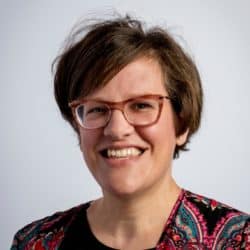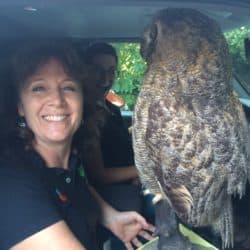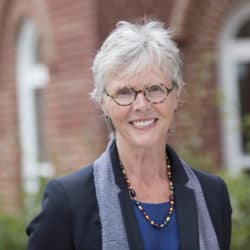As we mark the 150th anniversary of confederation, The Philanthropist is profiling Canadians from across the non-profit sector and putting a face to 150 individuals who work or volunteer in Canada’s social sector.
Name: Itoah Scott-Enns
Current role in the sector: Director, Arctic Funders Collaborative
Years working and/or volunteering in the non-profit sector: 2.5 years.
What was your first job in the sector or a defining moment?
My first exposure to philanthropy was as an intern for the Circle on Philanthropy and Aboriginal Peoples in Canada. I was a small-town Northern woman in the big city (Toronto) going to university. Philanthropy was completely foreign to me (I even had to Google it!), but the community of people I was working with at the Circle made me feel closer to home. In the North, philanthropy is not a word we hear often and there is very little understanding of the sector, so the internship opened my eyes to a world that few people up here even knows exists. I now have the privilege of working in philanthropy again, but with a focus on the North. I never expected that the internship at the Circle years ago would contribute to a significant change in my career path, but my entrance back into philanthropy was enabled because of the exposure and the knowledge I gained from two of the Circle’s strong Indigenous female leaders, Elisa Levi and Victoria Grant.
Describe your desk/workspace.
I work in a shared office space with Tides Canada Foundation and two other projects on the Tides Canada shared platform. We were all working independently or from home, so we decided to collaborate to find a communal space. It works out great! Even though we work independently, we can bounce ideas off each other since we work within the same Tides Canada systems and find common areas of overlap working within the non-profit sector in the North. We have our own little community.
What are you reading or following that has expanded your understanding of the non-profit sector?
I follow the CEOs/presidents of various foundations on Twitter. As leaders, they are always on the cutting edge of what is happening in philanthropy and the information they share on social media often points to emerging trends in the sector. It’s a good way to keep up-to-speed and connected since my work is based in the North, where there are very few people working on the grant making side of philanthropy.
What do you think our sector needs to be thinking about?
I very recently published “Reconciliation in Philanthropy: Learning By Doing“. This piece was about encouraging organizations in philanthropy to kick into gear and start redefining relationships with Indigenous communities. It will require new ways of thinking and new approaches that might conflict with the way things have been done in grant making for a long time. However, it is necessary if foundations are serious about having more reciprocal and respectful relationships with Indigenous partners to advance reconciliation. I received a lot of positive feedback on the piece. Indigenous organizations have been feeling and saying these things for a long time, but don’t always feel heard, so it is an honour for me to use my agency and advocate for a much needed spotlight on Indigenous perspectives within philanthropy.
Do you know someone we should profile as part of this series? Email us at philanthropistprofiles@gmail.com


